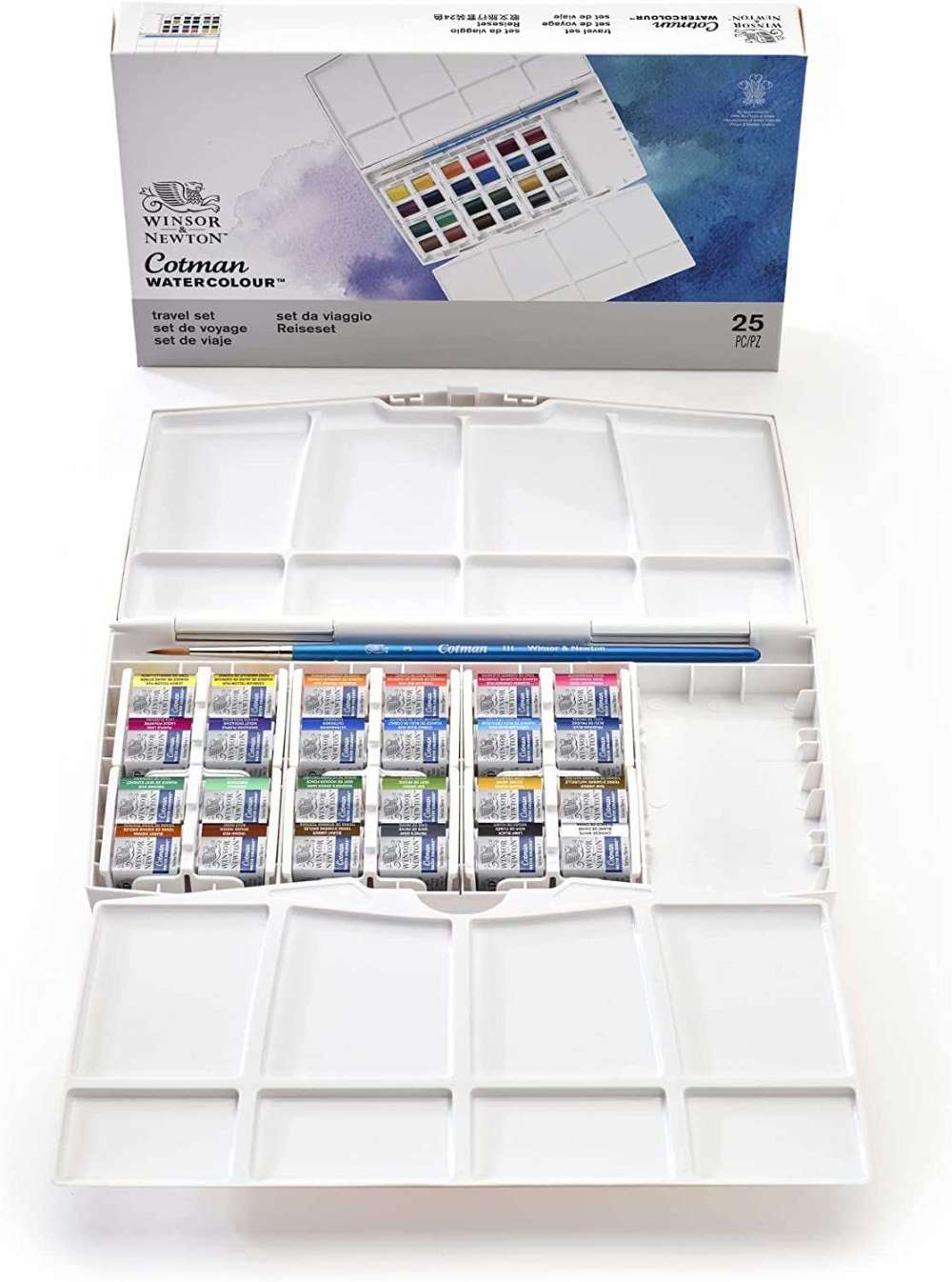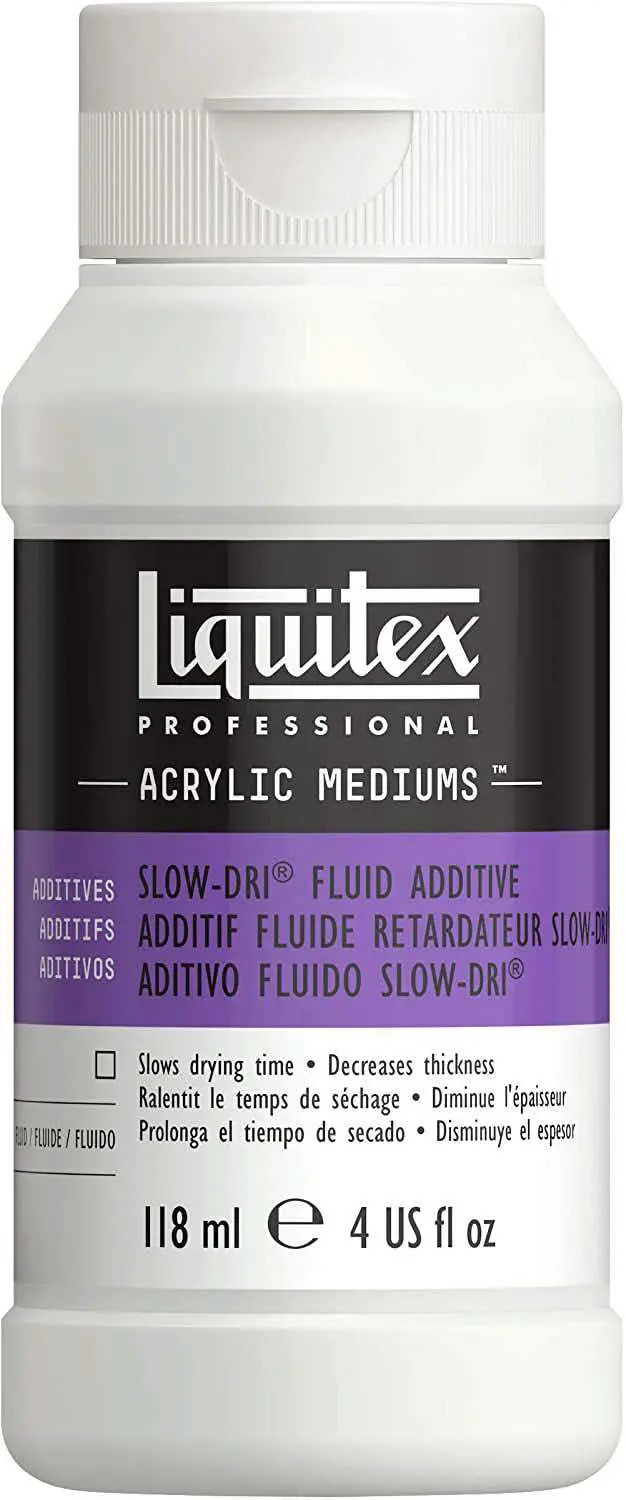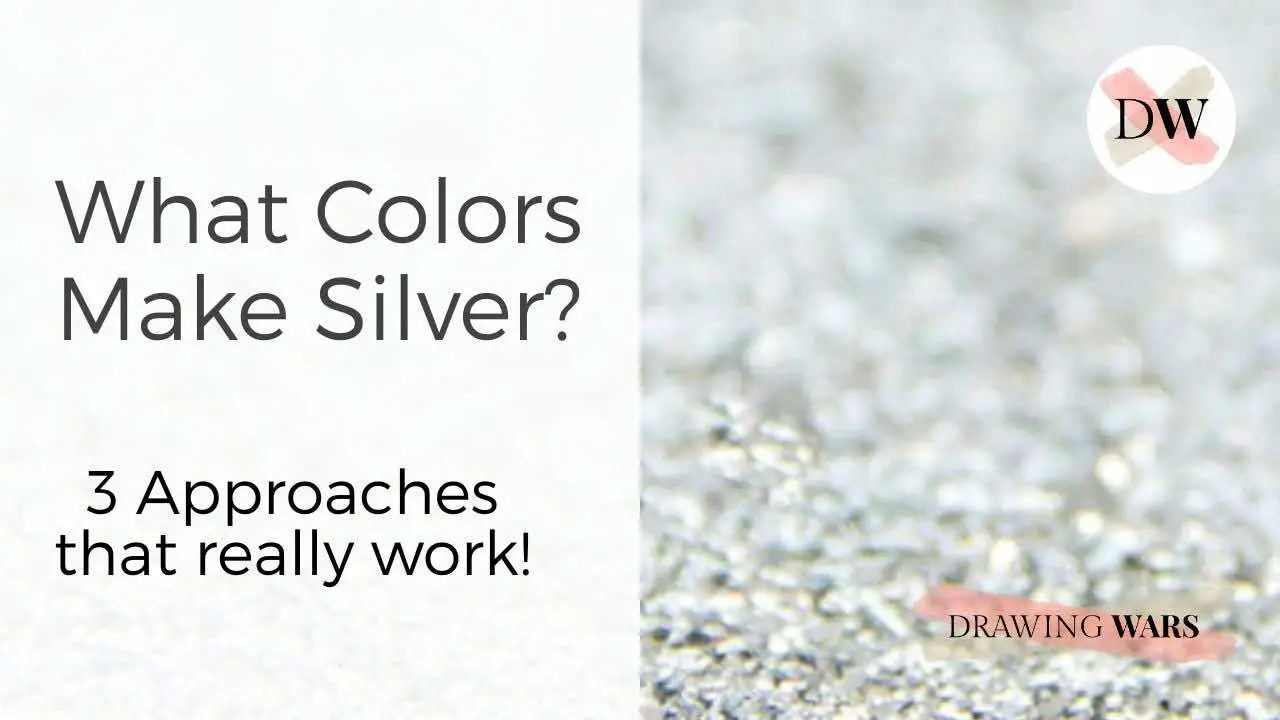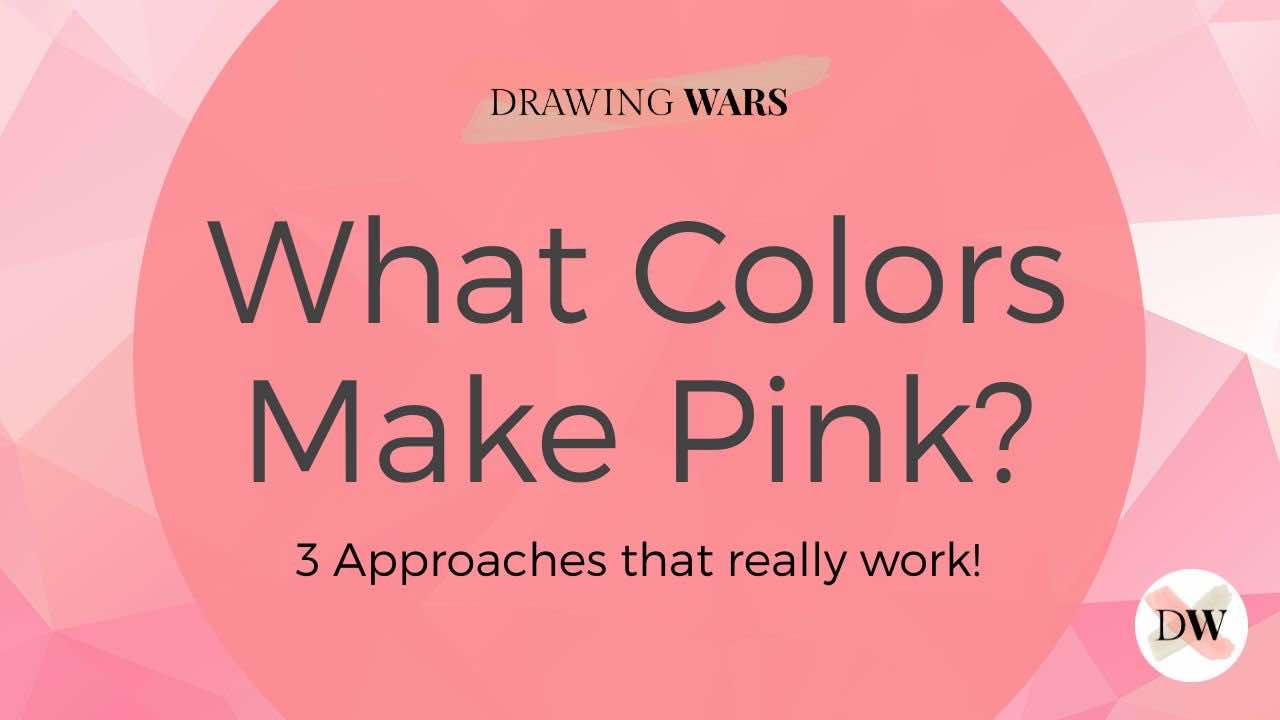
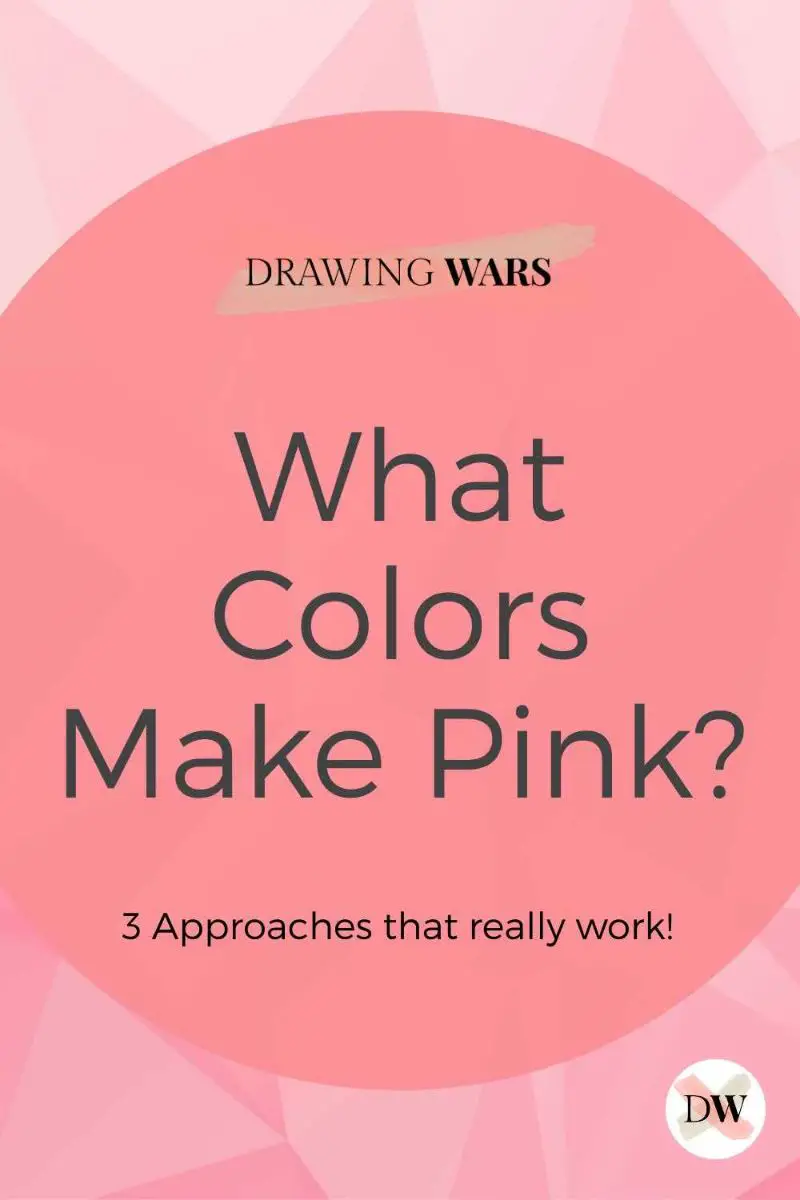
Pink: An Introduction
Pink is a soft and warm color that evokes romantic and playful feelings. It’s one of those colors that can create a warm and cozy feeling in any painting or drawing. But let’s say you don’t have pink color available directly to you. And even if you do have it, you want more variety. So how can you create multiple hues of pink? It’s quite simple really, all you need are three approaches.
Pink can be created by mixing red with white only. The resulting pink hue can be made lighter or darker by adding more white or even black to the mix. The color temperature can also be changed slightly by adding a tinge of any other cool or warm color to the resulting pink.
What type of color is pink?
The most basic way to get pink is by mixing red with white.
Pink is a warm color that is basically a tint of red.
Here’s a quick definition of tones, tints and shades to help you out.
Tints: When you mix white with any color, you get a brighter hue. This resulting color is known as the ‘tint’ of the original color you mixed with white.
Tones: When you mix grey with any color, you get a slightly duller hue. This resulting color is known as the ‘tone’ of the original color mixed with grey.
Shades: When you mix black with any color, you get an extremely dark hue. This resulting color is known as the ‘shade’ of the original color mixed with black.
The 3 Approaches to Making Pink Color
1. Mixing red and white to make pink
Use equal parts of red and white to get the most basic pink hue.
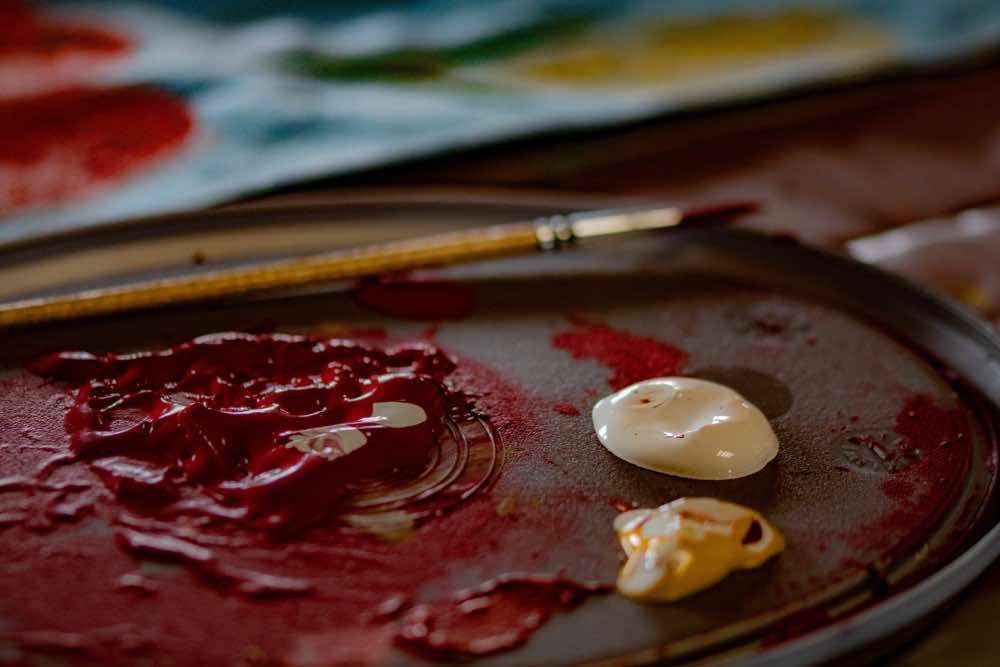
Pink is created by taking the primary color red and mixing it with white.
By adding more red to the mix, the pink will become brighter. Moreover, some red hues are inherently deeper than the others. You can also try out other red hues than basic red. Alizarin crimson or scarlet red are two other popular hues that can give you a different kind of pink.
2. Mixing other colors to create warmer or cooler pinks
Adjust the color temperature of pink!
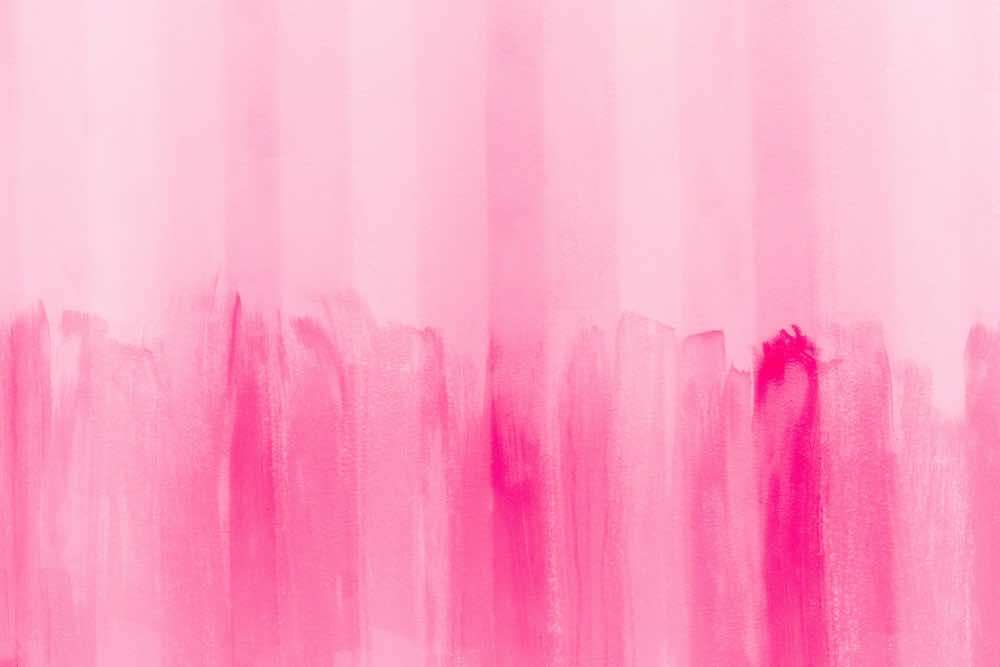
Once you’ve got the basic pink color by mixing red and white, you can adjust the color temperature. Although pink is warm, you can make it slightly cooler by using one of the many cool colors on the color wheel. Some of the cool colors you can use to create cool pinks are:
- Blue
- Blue-violet
- Blue-green
On the other hand, you can create a range of pink hues by mixing other warm colors too:
- Red-orange
- Yellow-orange
- Yelllow-green
You don’t necessarily need to use the above colors for creating pink hues. These are just some examples! For instance, you could mix violet to get a lavender-like pink.
PRO-TIP
keep the hint of color little
Whenever you're adding another color to tint a pink hue, it's best to keep the amount little. If not, the mixed color could completely deviate from pink.
3. Creating light tints and dark shades of pink
You can create bright and dark pink hues very easily!
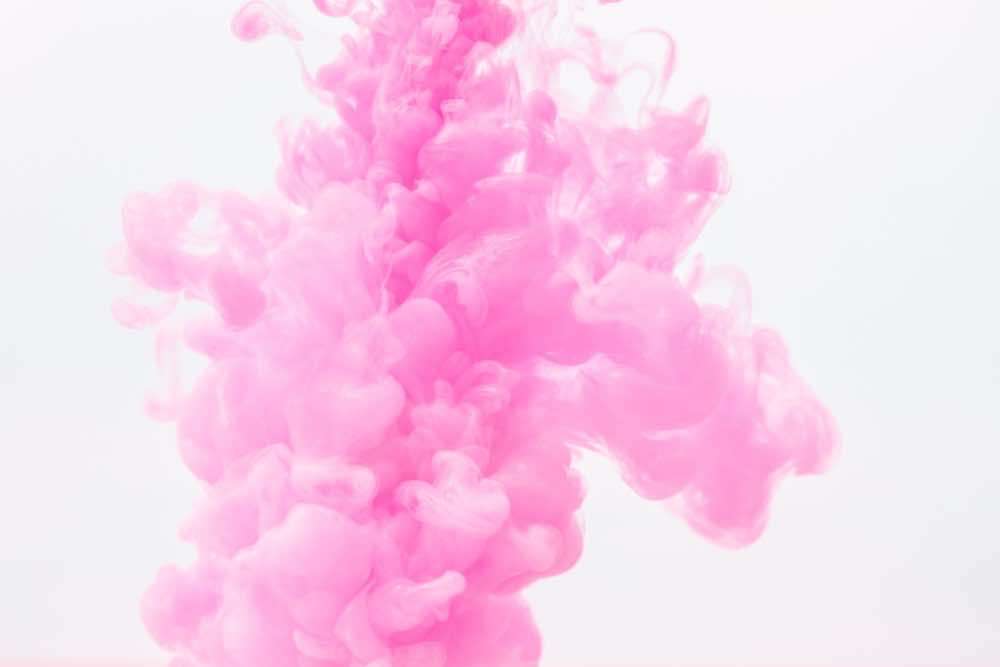
Pink hues can look different depending on whether they’re light, mid-toned or dark.
Pink already has some amount of white in it. If you add more white to the mix, you will get lighter versions of pink. This could create pastel pink hues or even pinks that appear very bright.
However, creating tints, tones, and shades may be very different across various painting media.
Making pink across different painting media
The texture of various painting media can make creating pink look different.
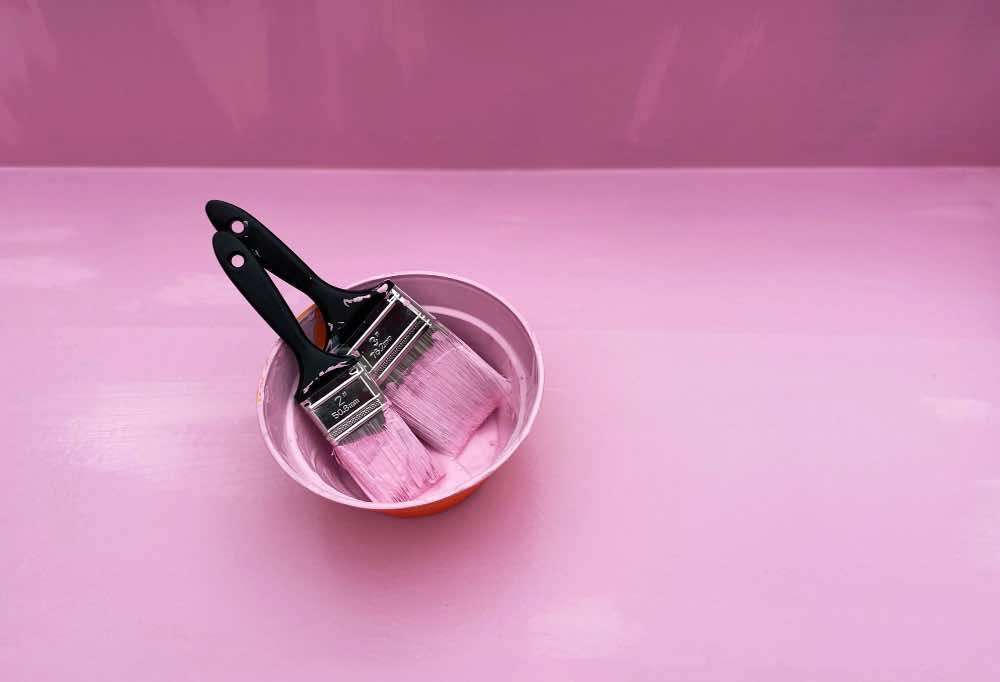
Mixing pink in watercolor paints
You have many choices to create pink in watercolor paints. You can directly use it off the pan, or simply pick a red shade and dilute it with water until it becomes extremely light and playful as pink. Although, it would still appear much closer to red than to pink.
PRO-TIP
mix with white
Many watercolor paint kits and palettes feature a white color. Use this to mix it with a red when you want to get a pink color but you don't want to lose the opacity of the resulting color.
Don’t have a watercolor paint palette with white? No problem, get this 24-color palette from Winsor & Newton .
Winsor & Newton Cotman Watercolor Paints (Half Pans)
The colors included in this 24 half-pan watercolor set feature many common cool and warm colors, including white.
Mixing pink in acrylic paints
Depending on the type of acrylic paint you have, the texture may be thin or thick. Heavy-bodied acrylic paints have dense and thick texture. While the type of acrylic paint doesn’t matter, you need to keep in mind that acrylics dry very fast. So if you mix red with white very slowly, or you’re unsure about the pink hue you want and wish to experiment, get an acrylic retarder instead.
If you don’t already have a retarder for acrylic paints, we would highly recommend getting this one from Liquitex .
Liquitex Professional Effects Slow-Dri Retarder
By using this retarder for acrylics, the drying time can be decreased for between 10 to 15 minutes.
Mixing pink in oil paints
Getting multiple hues in oil paints is easy. Since they’re easier to blend compared to acrylic paints, you could even apply red and white directly on the surface and mix it there to get a range of hues. If you want many pink hues in one painting, you can just add a tinge of any other warm or cool color to get a much wider range of pinks in one go.
Fun Facts about Pink: Color Psychology
The soft, playful and feminine pink can warm up any space and anybody's mood!
Since pink is a tint of red and not the primary color itself, you can expect it to have different effects. Remember that some pink hues could create a softer feeling compared to others. For instance, if you make a pastel pink, it would be feel softer and more innocent on the mind, compared to hot pink which is more bold and outrageous. Nonetheless, all the hues of pink share some common qualities and effects. Here are a few positive and negative traits of pink you need to keep in mind!
| Positive Traits | Negative Traits |
|---|---|
| Romance | Immature |
| Intuition | Unconfident |
| Kindness | Emotional |
| Warmth | Timid |
Conclusion
So making pink color is very straightforward. The easiest way is to mix red with white, as pink is a tint of red. Tint means any color that is mixed with white. But you can always go lighter and darker with pink too! Just add grey to get mid-range values and add black to the resulting pink color to get dark pink shades. The third approach to getting the right pink color is to also have a look at its color temperature. While pink is a warm color, you can add a tinge of any other color to get other pink hues that closely lean toward lavender, or even hot pink, for example.
Are you feeling fascinated about color mixing? Well, you’ll love to read this post on the 3 approaches to making azure color .
What Colors Make Azure? 3 Approaches that really work!
Azure is a precious shade of deep blue that reminds us of the marine life. So what colors can you use to create this spectacular blue hue? Here's the answer!

By Jimena & Iñigo
The Navarro-Rubios
My husband and I are learning how to draw and paint. We wanted to share this learning process with the world and have fun! That's why we created this blog. We'll have drawing contests every week and you'll decide who won that week! Follow along and learn with us!

Jimena & Iñigo
The Navarro-Rubios
My husband and I are learning how to draw and paint. We wanted to share this learning process with the world and have fun! That's why we created this blog. We'll have drawing contests every week and you'll decide who won that week! Follow along and learn with us!
